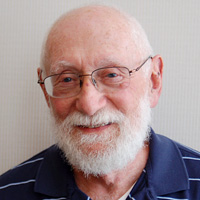Recently some friends and I experienced a small 2.9 magnitude earthquake. It was noted, dismissed, and everyone wanted to get on with our meeting. But I couldn't. We had just, literally, felt the pulse of the Earth. In this context, there is no other time we would be experiencing something so profound as our planet's heartbeat.
The Earth is a living planet. It evolves, grows, ages and eventually dies. Like our breathing, it expands and contracts daily in response to the dynamic forces in its interior and the gravitational pull of the sun and moon. Literally, all rocks form at great depths beneath the surface. Without the action of earthquakes lifting rock from beneath the sea, we wouldn't be here. And the interaction of those rocks with our atmosphere forms soil, which supports the abundance of life on and beneath the surface. Without earthquakes none of this would happen. Those few vibrations we periodically feel are an integral part of our existence and deserve not to be ignored. What if, instead of fear or indifference, we could experience them with a feeling of awe?
The great philosopher and teacher, Abraham Joshua Heschel, states that "the beginning of our happiness lies in the understanding that life without wonder is not worth living." The opportunities for wonder abound in our universe. In nature I often feel like I'm connecting with something beyond myself; a sense of peace and timelessness, a sense of my place in the universe. I am small but I am an essential part of the whole. There is a feeling of profound contentment that comes with giving up control and recognizing that without my doing anything the universe is there for me.
Imagine, all this from feeling a few small seismic tremors.
With a Perspective, I'm Ray Pestrong.
